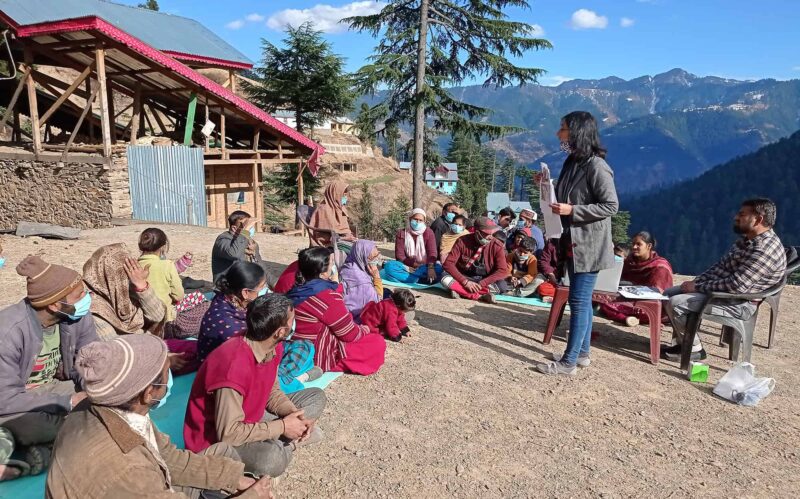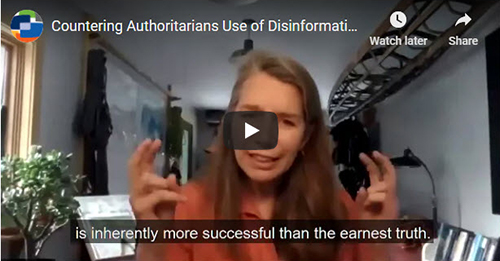The rapid spread of disinformation and misinformation is fueled by the erosion of trust in media, governments, and institutions like healthcare systems. Internews works at a deeply local level – conversation by conversation, person by person – to mitigate the impact of disinformation and misinformation by rebuilding trust.
Trust begins at home
Misinformation isn’t easily dispelled by advertising campaigns or messages from authorities. Recent work in India and the Philippines show people benefit from real, in-person conversations when learning to decipher misinformation.
At a community meeting in the Philippines, youth ambassadors trained in media literacy brought together influential religious leaders with health workers to frankly address local misperceptions – that COVID isn’t real, that hospitals are making money off of COVID “hoaxes” and more.
It is daunting, said Nafisah Ibra Abolais, one of the 100 young people signed up to work in her own community to help elders and authorities build understanding. “Nonetheless, we will do this. We will find ways,” she said.
Read more: Youth Ambassadors Organize Against COVID-19 Misinformation
In India, hundreds of small-group media literacy workshops show that even though person-to-person engagement is painstaking, it can be scaled.
In the midst of the pandemic, a group of 253 journalists, fact-checkers, media educators, non-profit workers, and community radio representatives organized 370 trainings, reaching more than 18,000 people from cities to remote villages.
The sessions were held in more than 10 languages or dialects and often in the comfort of the participants’ homes, schools, offices and shops.
Arranging these trainings is not always easy. For one trainer, Arpna Chandail, it involves talking to local village headmen, convincing people about the need for misinformation training, and facilitating the trainings often in the absence of electricity and internet connectivity.
She persists because the work matters. “People are getting information online … But they don’t know how to differentiate between the right information and misinformation or disinformation. They don’t know that everything on social media is not authentic. This is very crucial work.”
Read more: Person-by-Person, Internews’ FactShala Program Combats Misinformation
Countering Authoritarians’ Use of Disinformation
Internews President Jeanne Bourgault recently spoke at an online event co-organized with the McCain Institute on tactics to combat disinformation. Bourgault argued that the cornerstone of countering bad information is investing in good information – accurate, fact-based journalism.
Ambassador Mark Green, researcher Rocky Cole of Jigsaw/Google, and journalist Enrique Gasteazoro of Nicaragua’s Confidencial joined the conversation, moderated by Paul Fagan of the McCain Institute.
Listen to Bourgault’s opening remarks:
What We’re Reading
Poynter profiles the work of Migratory Notes, a “pop-up” newsletter covering immigration in the US that has drawn steady attention over the last several years and filled a need for in-depth, consistent coverage of a pressing but under-reported issue.
“In the four years of covering immigration journalism, we saw certain needs emerge and opportunities, and one was connection amongst immigration journalism and better knowledge-sharing,” said Daniela Gerson, co-founder of Migratory Notes and an assistant professor of journalism at California State University, Northridge.
Migratory Notes will partner with Internews this year in a series of town hall conversations, to build a knowledge-sharing network of immigration journalists.
One More Thing
In January we were thrilled to launch our inaugural class of Internews Fellows. Bringing together leaders of outstanding news, rights, and civil society organizations around the world, the Fellowship will help elevate local experiences and improve Internews’ work with all our partners.
(Banner photo: Media literacy trainer Arpna Chandail discusses misinformation in her native city of Jammu, India. Credit Internews)

